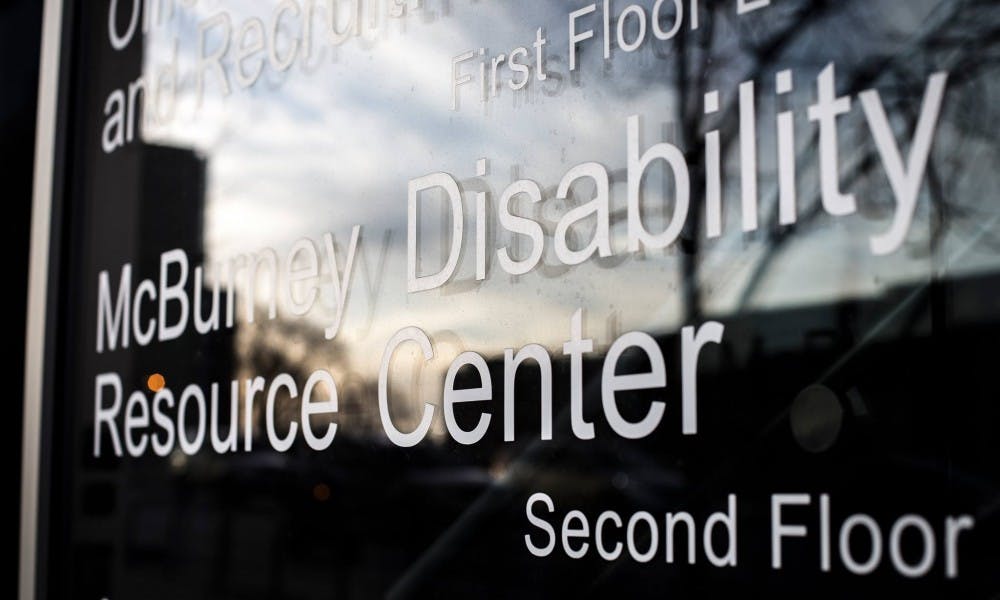Two UW-Madison students wrote personal accounts about their experiences dealing with the mental illness of anxiety.
Talking to someone, regardless of gender, is the way to beat anxiety
As I laid in bed after a particularly rough day, I finally realized something:
I’m not crazy.
It took me a while to finally come to this conclusion. In the fall, I went through a brutally difficult semester. I over-extended myself with academics, work and extracurriculars. It led to a downward spiral of constant stress, little sleep and poor eating habits.
This downward spiral eventually took to me to a place that I hope to never reach again. I would lie in bed for hours, unable to fall asleep despite my exhaustion. I would have to call my mom at four in the morning to calm me down just so I could get a few hours of sleep for the next day. I couldn’t sit still in lecture. I worried about everything so much that I would get so sick to my stomach I couldn’t eat.
It got to a point where I seriously considered hurting myself. There were days and nights where I would walk out to my apartment’s balcony and think about how much easier everything would be if I just jumped. It became a solution in my mind, an easy way out of all the suffering. I could end the everyday struggle with just a jump.
Eventually, I started taking medicine for my anxiety. It took me a while, but I did get better. I learned how to better manage the disease and not push myself to unattainable standards. I learned strategies to help with sleep and to navigate stressful times.
I learned a lot from this experience, but I think the most important lesson I learned was that it’s impossible to fight anxiety alone. Outside of a select group of people, I kept everything that was going on to myself.
I didn’t want to look weak. I didn’t want people to think I was crazy. I didn’t want people to think I couldn’t handle stress. I didn’t want people to think less of me.
Sadly, this reality is far too common for people struggling with mental illness. As a male, I didn’t feel I could comfortably talk to other guys about my anxiety because of the idea that men must be tough. It wasn’t right for me to be so weak. I shouldn’t be calling my mom in the middle of the night. I just need to be stronger.
It’s time for these narratives to come to an end. My difficult semester could have been made easier had I been more willing to open up to people. But this starts with changing society’s perceptions on males dealing with anxiety. We aren’t crazy. We certainly aren’t weak. In fact, our ability to continually push through the disease makes us pretty damn strong.
It’s also important to remember that there are resources for help with mental diseases. Outside of UHS counseling services, the McBurney Center is a little-known resource for students with mental health issues.
The center helps accommodate students by potentially giving them more time on tests and with assignments. They also have students take exams in smaller classrooms with less people as a means to ease the effects of anxiety or other disorders. They open up a conversation with the professors to help reach a reasonable accommodation for the students.
Students with mental illnesses now make up the largest population, 30 percent, of people registered in the McBurney Center program, according to data from the 2014-2015 academic year. This population has also grown in the last three years. 413 students with mental illnesses were in the program in 2014-15, up from 334 and 288 students the previous two years. McBurney Center Director Cathy Trueba viewed this as a positive because more and more students are registering for the program and receiving the help they need. This is hopefully a sign that students are more willing to come forward with their diseases, and that the societal stereotypes about mental illness are beginning to break down.
“With some relatively small adjustments, that feel small on the outside looking in, they’re really big adjustments to the students and they make a huge difference,” Trueba said. “We want to continue to get the word out to the students that we may be your resource.”
—Bobby Ehrlich
My anxiety made me the person I am today
Before I even opened my eyes to begin the day, I was already running through a list of all the things I had to, and determining whether or not to panic because they weren’t done yet. Almost immediately, I began to schedule my day down to the very last minute in order to make sure I would have time to accomplish it all. Then, I would get up out of bed and start to feel the hysteria creeping up on me because time was already running out. Pretty soon, the tears welled up in my eyes and the feeling of nausea began to sink in.
On the outside, you would think nothing was wrong. On the inside I was drowning. Drowning in anxiety without any chance of getting enough air.
This was how I started every single day of freshman year. Overwhelmed and not knowing why. While kids were having the time of their lives, I spent the majority of nights crying on the phone to my mom and dad begging them to take me home.
I have always been a perfectionist, but I had never experienced anything quite like that feeling. I remember telling my parents that I thought I was losing my mind when it came to school. I just felt so much pressure to do so many things, get good grades and to keep my GPA up, all while deciding my majors, making new friends and adjusting to a new environment. I was trying to do it all, but all of it was just too much. I spent countless hours before exams not eating; throwing up because I couldn’t handle the anxiety of what grade I could receive or how hard the test may be.
The girl who always had everything together didn’t want anyone to know that everything was falling apart.
Finally, I did the best thing I have ever done. I asked for help. I told my parents I couldn’t do it anymore. All the uneasiness about school took over my life for long enough. After consulting my doctor, she told me that what I had really wasn’t all that uncommon. In fact, she said that she heard the exact same thing that I was experiencing from so many other college kids that she didn’t even know where to begin.
What was “wrong” with me? Nothing. Absolutely nothing. What I had to overcome? Anxiety. See, that’s what people don’t understand. Talking about a mental illness isn’t “taboo.” Having a mental illness doesn’t alter the person you have always been. And most certainly, having a mental illness does not make you crazy. In today’s day, I have found that many people try and sweep any forms of mental illness under the rug whether that be anxiety, depression or bipolar disorder. Society says that people with mental illness just need to “chill” and “deal with it,” or just need to “toughen up” and stop being so “weak.”
Unfortunately, society is completely wrong. People with mental illness don’t need to do any of those things. In fact, people with mental illness just need to keep being the incredible and beautiful people that they are today. They are not “crazy,” and they are not “weak.” They just have different battles to fight.
Although I am no longer anxious about school, I have learned from my battle with anxiety that mental illness is nothing to be ashamed of. I have learned that anxiety has actually made me the successful person that I am today. This mental illness had made me, me. In fact, my anxiety is awesome. Why? Because I’m awesome, and that wasn’t going to change because I struggled with something like anxiety.
Today, I am challenging every single one of you to stop looking at mental illness like a curse. Look at it like a disease. People can’t help how their brains are chemically balanced. There is one way, however, that you can look at people with mental illness. You can look at them with the open hearts and open minds you would use to look at everyone else. Why? Because we are all just people, and that’s all we will ever be.
—Jenny Recktenwald
Bobby is a sophomore majoring in journalism and political science. Jenny is a sophomore majoring in legal studies and English. Have you had any similar experiences to these two? Please send all comments, questions and concerns to opinion@dailycardinal.com.






